
DH: How tall are you? There's a picture out there of you and Tanya that shows her at or below shoulder height.
CW: 6'5", 195cm. She is pretty small.
DH: Tall, young, broad-shouldered and a ring beard. How hard was it for you *not* to play Prince Charming?
CW: With Tanya?! Is this a diplomacy interview or a dating TV show? I'm spoken for already. I just wanted to make sure new and talented players like Tanya had fun.
DH: I was more thinking of the 6 elderly, balding men you're usually up against. When you're trying to convince a new ally and your offer is no better than your neighbor's, aren't people more inclined to side with you, because when push comes to shove, they'd prefer to be associated with a guy like you than the beer barrel with the wild hair? Do good looks give you an advantage in Diplomacy and how do you exploit that?
CW: Haha. That is a good characterization of the usual crew at one of these things. At its core, Diplomacy is about decision making and influencing other peoples decisions. No matter what we think or believe, 'likeability' effects how we make decisions. I try in all my games to be friendly, to smile, to joke, to give compliments, to talk to people about their personal lives, about their weekends, about what they like to do. This helps build a positive feeling, and when it comes down to decision making time, these things matter.
I have had my physique work against me though. Some people find that I am too imposing and if they feel intimidated by me, that can be enough to influence their decision making. From feedback I have gotten at tournaments, I have tried to adjust my body language to take more submissive, and open postures when I am talking to someone that has a very closed body language. The simple act of sitting down seems to have a positive impact so I try to sit as much as possible when I am negotiating with new people.
I also try to think about the clothes I wear – it is a good thing to dress well, but not too well. Your best bet is to have clean newish looking clothes but not noticeably better than the rest of the crowd. You want to shine just a little bit.
In the past I have attacked people because of bad breath or body odor, or because they snack while they are talking to me and my order sheets end up having as many calories as a bag of chips. I've attacked female players because I could see the influence they were having on the other players and the best way to deal with it was just to attack them and get them out of the game.
It is kind of like the cool kids at school. If you can be one of the cool popular just out of reach kids in the crowd, people want to hang around you, and soak up interactions with you.
DH: Awesome answer. Makes me want to continue forever. But you're on holiday, so let's keep this limited. You swept into the final on the strength of a German near-solo in round 3 that got you the "Best Germany" award. How did this happen?
CW: People do not always have the same goal in Diplomacy. It was round three, so a lot of the guys on my board were playing their last game. England had had two poor results and said he would be happy with strong second. That did not conflict with my goal so we made a deal to run the game that way and that is what we did. I tricked France into some terrible moves and made quick work of him. I made the whole board paranoid about Italy and Russia (two well known long time english players) and generally sewed chaos in the east.
I never took a center off of England. I proposed the draw with center counts something like 14-8-5-5-1-1, which I felt confident was a enough to get me to the final table. I told my English ally that 'If this vote does not pass, I am going to solo this game.' At that point he decided an 8 center second place was good enough and the game ended.
DH: You're on the top board now. Have you been on one before?
CW: I've been on top boards before but not many. Most of my play was done in the USA where top boards are far less common. I was exposed to it for the first time when I came to Europe.
DH: Which was in what year?
CW: I was top board at WAC. a few times at EDC. Probably other tournaments I don't remember. I've been playing this game for 17 years. Many things I don't remember. I first played in Europe during an exchange year I did in Switzerland 2004-2005. Then I moved back to Europe in 2007 for a year. Then Africa. Then back again in 2014. And while I was living in Africa I did one or two tournaments a year in Europe.
DH: I'll drop the "young" then 🙂
CW: I'm 33.
DH: A true globetrotter. Where in Africa?
CW: I used to live in Gabon. I've moved around a lot as an adult.
DH: Do you speak other languages?
CW: I speak French and some Turkish.
DH: And you use that? You go up to Nicolas or Ruben and you instantly switch to French? In Oxford, center of English learning?
CW: If I get two "what I didn't understand you?" In a row, I try switching languages. Nicolas' English is very good so it's not needed. But there are many other situations where a mix of languages is very helpful.
DH: On the top board you're in the company of three world champions, one of them defending his title. Are you duly impressed?
CW: No, not impressed. I consider them my peers. I have respect for all of them. They are good, know the game well and are challenging to play with.
DH: In a game like this, where you get bottled up quickly, do you reach out to the Western powers much? We see that Russia got pummeled. How much credit do you give yourself there?
CW: I was talking to the west a lot, but I think Russia's pummelling had very little to do with me except that I defended well against him in the south (he was dead set on getting Ankara off me as Italy and Austria promised). My lobbying of the west was: "Hey, if I am alive it's better for all of you. You need to shake things up and undermine their positions." Unfortunately it didn't work to push Marvin south.
DH: So Marvin, the person you probably knew best as you're in the same club now, disappointed you the most.
CW: He could have done something about Doug Moore. He was the only one. But who knows what would have happened. I talked to him most seasons and his reasoning was sound. Perhaps he could have done more on the top board, but it's too easy to say something was wrong or right after the fact. Turn to turn he made good choices. I think at least.
DH: Thanks for the interview. I hope it didn't keep you from sightseeing? Enjoy your stay in Finland.

DH: The name registered in the World Diplomacy Database is Ruben Sanchez Garcia Luengo De Madrid. That sounds very Don Quijote. Are you descended from an old family of Spanish aristocracy?
RS: Indeed, that's correct. The registered name is my full name. Old nobility, but impoverished since long ago. I have also an anarchist as ancestor.
DH: Cool. It's not the first time that you made it to the top board at a WDC. What is needed to make the experience really unforgettable?
RS: Winning! Losing a final is so very difficult to cope with.
DH: That can still happen, seeing that this is your second top board after Milan and you already increased your final center tally from 1 to 2. Ok, I'm joking. But given that you only participate in tournaments on the European continent and end in the top 10 almost every time according to the invaluable World Diplomacy Database, you're really a force to consider. And that in spite of what can be viewed as rather obvious shortcomings, such as your weight and your command of the English language.
RS: Can you explain why you think those would be bad?
DH: I'm basing my judgment on the pictures I see of you at the event and the comments you wrote on FB. I might be wrong, but you look a little overweight (like Peter), which does not conform to the modern ideals. This might influence people's first impressions, and consequentially the way they treat you in a tournament setting where there are a lot of strangers. Also on the top board you're surrounded by people from anglophone countries or living there for a long time (Nicolas in Canada, Marvin in Great-Britain after having lived in the USA before). There might have been a wider variety of nationalities during the previous rounds, but at the surface this seems to be putting you at a disadvantage. Do you disagree?
RS: Well, I know I'm overweight, but I confess it's the first time that someone tells me that this would be a disadvantage in playing Diplomacy. As concerns English I have been an expatriate in the UK twice, once in Norway, once in Uganda and currently I live in Qatar, constantly speaking English at work. It's true that I didn't make an effort to edit what I wrote on FB, but I don't think English puts me at any disadvantage when conversing.
I know that I made errors on the top board, but these were unrelated to what you mentioned. At least I tried to play for victory. I did not manage well England (Nicolas) and Russia (Peter). I should have chosen more clearly between the two of them. I was surprised by the participation of France (Marvin) in the stab on Germany (me). From my position it was crucial to control the center of the map and give another country than Italy or Austria a chance at victory. The best option for France was really to continue with Germany, English centers were useless to control Italo-Austrian expansion.
Otherwise, I know I should work on my waistline, but generally speaking I can be a very good ally.
DH: Thank you for replying in good humour. I will end the interview here. Thanks for your participation and good luck in your conquest of the WDC title.

DH: Two WDC top boards in a row, but your record is perhaps even more impressive. This year alone you were in how many top boards or top 7 finishes?
PY: Good question. I had to go back and look up my results. It looks like six tournaments and six top 7s.
DH: That's very impressive. What's your secret?
PY: I don't know that there is any secret, per say. In the beginning of the game, my main focus is to get an ally and to not be the target of an alliance. If you can get through 1902 without a concerted attack heading your direction, you're usually in good shape moving into the mid game.
To accomplish that early goal, I'm looking for something other players want to do...whether it's attacking someone else because of bad experiences in previous games or because they just favor a particular alliance or they just really want to grow 3 centers in 1901. Usually you can find something they want and then help them get there. Good will bought early pays big dividends in the mid and late games.
DH: You were Austria in WDC 2016 with Chris Brand in Italy, but you attacked Russia after Turkey was eliminated. In this year's WDC you're Russia with Chris Brand in Austria, and again Austria attacks Russia instead of Italy. Are we seeing a pattern here? What should have happened in either game to move Austria the other way?
PY: It's not too hard! I would say more, but... Sorry, life is crazy, pregnant wife, busy work.
DH: Congrats with and good fortune to the baby and the mother. Let's hope it inherits some of your personality traits.
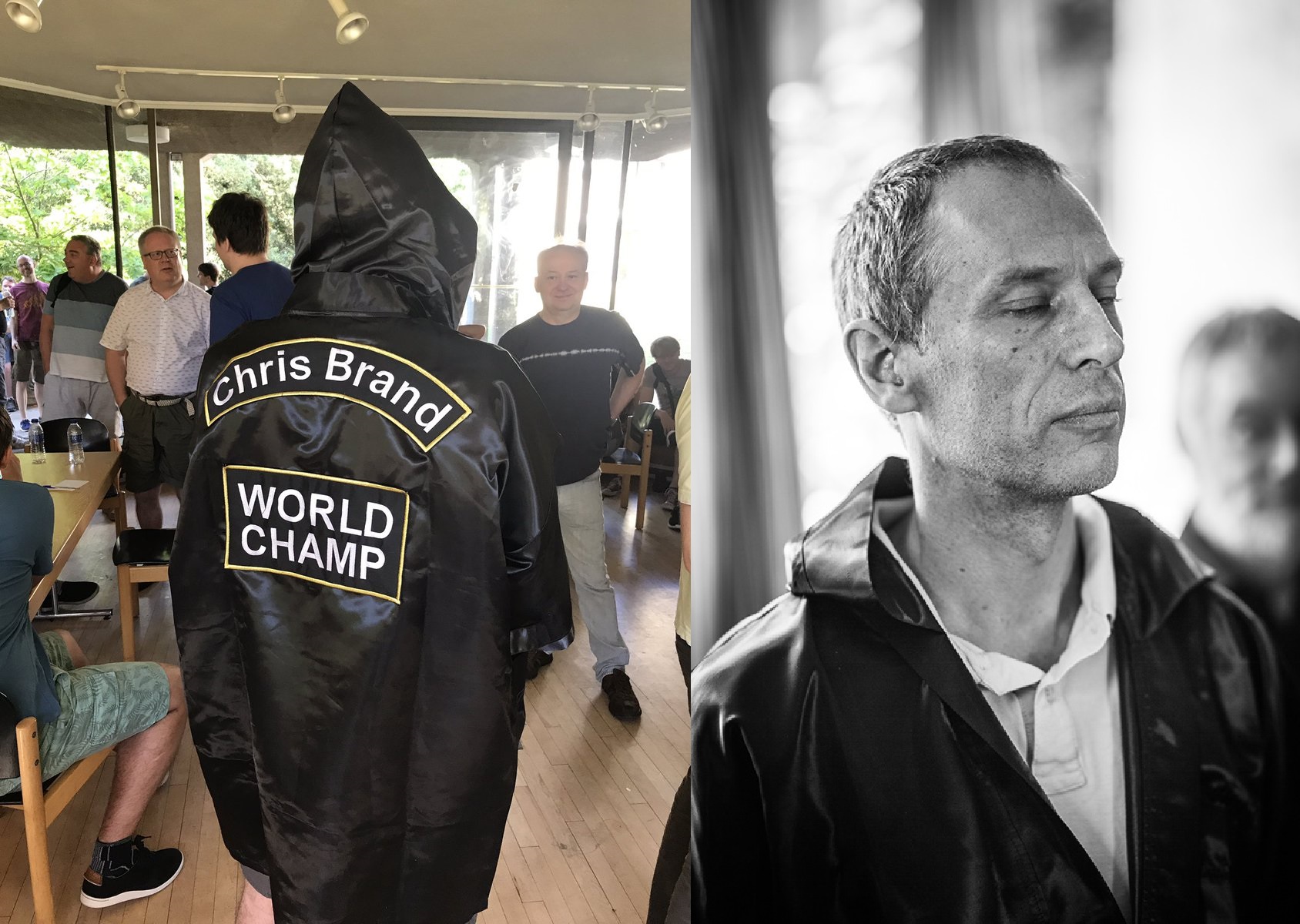
DH: You almost succeeded in the double. On several pictures we can see you with a boxer's gown, complete with a hood, sporting your name followed by "Champion". That's a pretty awesome stunt. Where did you get it from?
CB: Yeah, no complaints about my performance in Oxford! The robe was from Amazon and I got the patches made locally. I was thinking that (a) in a number of other competitions, the reigning champions make a big deal out of it, (b) I knew that I wasn't going to be able to keep it quiet anyway so why not own it ? (c) Dan Lester was quite likely to ensure that everyone knew that I won last year, so why not help him out with that ? (d) people would find it entertaining, and (e) as far as I knew, nobody had ever done it before, just as nobody had successfully defended their title - at least this way I could do something that hadn't been done before 🙂 My friend wanted me to have a theme song that I'd play whenever I entered a room, too, but I decided to keep it low-key 🙂
DH: It didn't keep you from reaching the top board, so whatever psychological effect it had, it couldn't have been too detrimental. It was a close shave though. For the second straight year you qualify seventh and thus last. The difference with number eight, Laurent Joly, was just 0.05 points. For comparison, there was an 8 point gap with sixth place and a 4 point gap with ninth. Lucky stars? Or extremely well calculated?
CB: I'm not one of those people who keeps track of how everyone is doing during the earlier rounds of a tournament, so it's always something of a surprise whether I make the top board or not. I do my best to understand the scoring system so that I know how to improve my score within each game, and then I play each game to the best of my ability. So the short answer to your question is "just luck" 🙂
I've played the top board at WDC four times now, and I believe I qualified seventh every single time. With the method used to choose countries recently, that's actually quite a disadvantage because it means that I've had no say in the country choice order. So it really is a place where I feel like I could improve my chances on the top board by just playing a little better in the earlier rounds.
Having said that, I really went into the Oxford WDC with low expectations - as the defending champion, I expected to be targeted a lot in the earlier rounds, but that really didn't happen, and I managed to get decent results in all those games. Same thing at Whipping earlier in the year, actually (they let me take home "Best Italy"). Just goes to show that Diplomacy players are an unpredictable bunch, I guess...
DH: Or they didn't want another ex-champion to quit the game soon after failing to defend their title... No one has successfully defended his title so far. Halfway through the game you were in the lead (shared). Can you describe what went through you at that point? Were you like "If I win this thing, I'll be a legend", with adrenaline kicking in?
CB: That thought definitely crossed my mind when I was told that I'd made it to the top board, but once we started playing I was focused on the game itself. I'm sure we've all seen a lead disappear very quickly, and top boards tend to be pretty dynamic.
Having said that, I never had to switch my mindset from "what do I need to do to win this" to "it would take miracle to win this now, so what should I aim for". The AI alliance with Doug absolutely helped keep me in the game, but it was better for him than for me. I don't think Doug ever left me an opening, and Marvin (France) didn't seem willing to head into the Med. There was definitely a point in the game where it looked like it may well be impossible to finish ahead of Doug if Marvin continued to stick to the North.
DH: The interesting thing is, you already had played against (or rather with) Marvin in a previous round, you again as Austria, he as Italy. The two of you basically had split the board, 11 to 12, with Russia at 7 and England at 4 as the only other remaining powers. From this it seems likely that Italy took France and Iberia and you got a bigger piece of Turkey and the Balkans. How would you compare Marvin's handling of Italy to Doug's?
CB: That's an excellent question, and extremely difficult for me to answer this long after both games! I'll do my best, though. I definitely felt more of a need to always be ready to defend myself against Doug than Marvin, but I don't remember whether that was just that Marvin had a more obvious supply of "dots that weren't mine" in that game than Doug did in our game.
There's always a different feel to an earlier round game, too, in that there's less of a need to top the board in an earlier round - a decent "second place" may well be good enough, so there's less of a need to turn on somebody else's just because they're currently topping (with hindsight, it might make sense for me to play every game like it's a top board - maybe then I can qualify above 7th).
Marvin and I started out that game both taking a huge risk in trusting each other and seeing them pay off, which can definitely cement an alliance, whereas with Doug there was more of a re-negotiation each turn to reassure each other than our individual needs were best met by continuing to work together. I guess that's the key difference - with Marvin I was in more of an alliance mindset and I feel like he was, too.
DH: Thanks for the interview and good luck in your future tournaments. What will happen to the robe?
CB: I haven't decided what to do with the robe yet. Most likely I'll store it away somewhere, ready to be pulled out next time I get to defend my title 😀
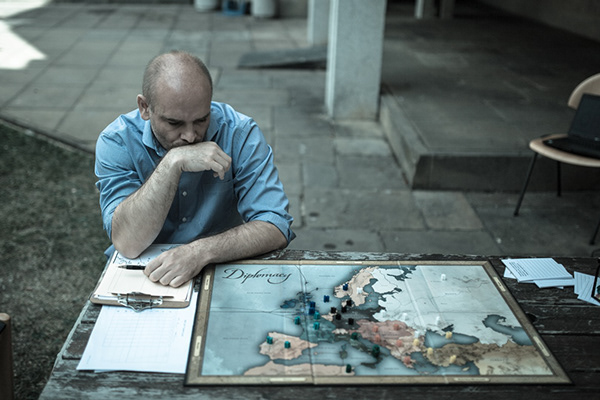
DH: You're an ex-World Champion, even before Doug got his first crown. How old were you at that time?
NS: I was 33 in 2006 when I won in Berlin.
DH: After the top board was announced, you were immediately declared the top favorite by some. What makes you so reputable? Is it your style, the number of victories you've collected so far, name recognition, ...?
NS: You should ask them. I was not really aware of this favorite status. Maybe the reason is that I have been there before - it is my 3rd WDC top table. And experience counts. I have also played quite a lot of top tables (1 EDC and 3 or 4 French championships). American tournaments are usually designed around long games and American players may have less experience playing shorter games with a fixed last season. But, I would say that there were a lot of very experienced players - Doug, Chris, Ruben, Peter are all used to WDC top tables. Marvin and Conrad were a bit more inexperienced. But, as I know very well, not being a favorite can be a big advantage at a WDC top table.
DH: That's an interesting observation. You probably didn't have much of a reputation eleven years ago. I remember Pitt Crandlemire pretty much came out of nowhere when he won in 1997. And the list goes on. Perhaps Marvin should really have been the bookies' favorite. As it happens, you were playing France in your 2006 victory, just as Marvin this time. Do you recognize your younger self in the way he played?
NS: I think that Marvin played very well at the start of the game. He took advantage of not being the favorite to get concessions from everyone. But I think that he never really took his chances once he had a really good position. He should have attacked me when I was weak and then after I got back in the game, he should have gone for Doug to get a chance to play for the title. Sure, it was risky, but you have to take your chances at a WDC top table. He played it too safe in my opinion.
Back in 2006, I think that once I saw a chance, I went for it 100% without thinking twice. The advantage of not being the favorite is that you can get away with having a good position for a bit longer before the rest of the board goes all Balance of Power on you. But still, finishing second for his first major tournament is a great accomplishment.
DH: Final question. With Doug Moore's victory America has won the WDC for the 7th time. There's only one nation that does better, and that is France, with 9 victories. There were again 2 French on the top board, both with plenty of top board experience. Is this French golden generation going to last? Or is it on its last legs?
NS: The French hobby has slowed down quite a bit recently with fewer tournaments and few players who travel to international events. But there are still very strong French players. I would put my money on Gwen Maggi in any game or tournament he plays in. Cyrille Sevin is the most successful player of all times and is still active and dangerous. Ruben is due winning a major event and Emmanuel du Pontavice is also a strong contender. Laurent Joly almost made it it the top table in Oxford.
The 2019 WDC will be in Marseille and I would expect some French players who rarely travel internationally to participate and do well. Benoit Jeannin, the current French champion, Alexandre Godefroy are really good players. And if Yann Clouet was to get his motivation back, we could expect the results to follow. So overall, the French hobby is having a down time, but it can still be counted on for good results in the future.
DH: That's indeed an extraordinary line-up. There's still considerable mileage in there. Bonne chance and thanks for the interview.
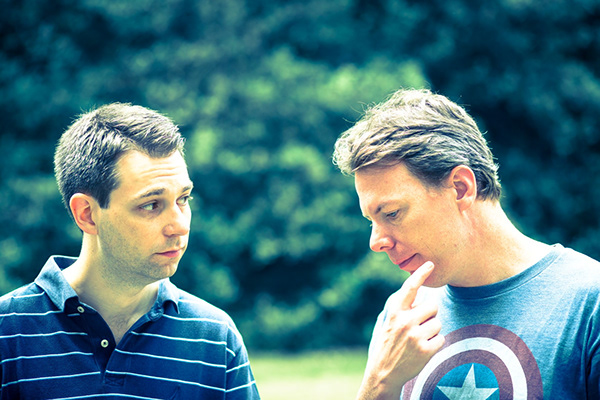
DH: You are from Austria, but only recently rose to prominence through your activities in the London Diplomacy scene. Where do you situate your Diplomacy roots?
MF: Yes, I am Austrian, but having lived in the USA and the UK and am much more familiar with the Anglo-Saxon types of Diplomacy play and theory than French or other European (including Austrian) ones, though I am learning. I think having mostly read about but not directly encountered the French style of play meant I was at a serious disadvantage in the WDC Final (as both of my immediate neighbors were French players) which may have ultimately cost me the game.
I've always loved FtF Diplomacy and consider it the only 'true' way of playing it. That said, like many other players I could never get enough people together to play a 5 hour game, so I got very involved in online Diplomacy, first on the USEF judges in 1996-2000, and then on Christian Sheldon's BOUNCED online Diplomacy site under the alias jamesturner9000. I've been there ever since, and for my money it's by far the best interface for online diplomacy out there. It perfects your order writing as it's not point-and-click, it can be customized, its colors are beautiful, and it has the clearest adjudication arrows I've seen anywhere. Recently I started to play on playdiplomacy.com only because of the larger number of participants and some interesting variants (like Versailles), which BOUNCED didn't have.
DH: You came in with low expectations, and all of a sudden you find yourself at the top of the ranking going into the final round. You started with a bang, winning big with Russia that also granted you the best Russia trophy. How did you accomplish that?
MF: The Russia game was an interesting one. I arrived to the WDC all excited, had a bacon sandwich, and was ready to play my first game. I didn’t expect to do very well as I had a whole day of work behind me and was playing one late game (I was one of the planned late arrivals). I may well write a long article on it but for now here’s a quick run-down (if I can remember!).
Long story short, I tried a split opening (Mos-StP) which had worked very well in recent months when I drew Russia at the LDC (the London Diplomacy Club) games. It requires a spot of luck and a strong diplomatic position to pull off, but if you can successfully establish two fronts where you have an important role (rather than being a marginal player in Scandinavia) then you’re in the money. In the north, I was up against two excellent players in Germany (Noam Brown) and France (Seth Vaughn). Germany was tactically outstanding and France was extremely good on both the diplomatic and military side. England was a promising new player Bora Ristic, who played very well for what was one of his first games.
I knew France would be my long-term adversary if I made it out of the gates, so cultivated a good relationship with all northern neighbors. I then worked with England to try to take down Germany. The stab was solid, and I was in the German lands, took Den, and had fleets in Bal. But this is where Germany’s tactical play was incredible, guessing right almost every time and causing enormous delays to my progress. Any other Germany would have folded more quickly under the onslaught, but not this Germany. Eventually I overcame him with sheer force of arms, but credit goes to his defence for preventing me from getting an outright solo at 18.
England became very upset with Germany or France and was willing to be an extremely close ally to me. I saved him from outright defeat at the hands of France, I think, and he did try to recover and make demands. I tried my best to keep the advantage while also placating him, and it worked. I stationed a fleet in Nth and never moved against England until the very last turn.
In the south, I had Dave Simpson in Italy as my closest ally on the board, and that paid off for him too as he came second. Our cooperation as excellent – often eye contact was enough for us both to know whether a plan was on or off. A real honor to play with such a grandee of the UK hobby.
Austria was a brand new player (David Reid) and he told us this outright, which probably encouraged me to try for the split opening and move to Ukr instead of Gal. He did try for Gal in S1901 but misordered (if I remember correctly it was Tri-Gal), so I caught a lucky break there. ITR took out Austria, and after that Dave Simpson and I cornered Turkey. France came to the Med fairly early which helped keep Dave at bay but my concern was still of a strong France winning the board. This is why I worked with everyone for as long as possible to maintain as much goodwill as possible for use when France breaks away. And I think he did at one point, looking like England and Italy were under duress and Germany preoccupied with my invasion.
Can’t remember much else except that it was a fun, fast paced, and engaging game. Everyone was fully involved and the diplomacy was excellent. This is the reason I had joined up for the WDC – to play world class players at the highest possible level. It was very enjoyable, and coming out with 16 as Russia was an added treat. I wasn’t sure till the end of WDC whether that would give me a best country award, but I definitely came out of the gates fast and set myself up for the rest of the tournament. I thought that most players would take a ‘let’s see how it goes and I’ll be happy with a draw or second/third place for the points’, so I thought if I could make a break for it I would. I didn’t expect such a huge break!
The game ended at around 2am, and I went straight to bed. By the following morning and before my second game, word was spreading among everyone I spoke to about the 16 center Russia. I kept my head down and acted as surprised as they were, because I didn’t want it to affect how people played me in the second game! And this was a good tactic -- even my ally in the Key Lepanto, at the time reigning world champion Chris Brand, didn’t find out about this until most of the way through the game, which was another lucky break for me I think!
DH: With the biggest score after the first four rounds you have obtained the right to choose the first country. You choose France, a country you didn't play before, instead of e.g. Russia with which you had so much success in the first round. Why?
MF: It is true that I had seemingly very good fortune with Russia in the past three games as that country (in the previous two LDC meets, and one at WDC). However, Russia is a very precarious country to play and extremely difficult if the opposition is united or is of as high calibre as this one was. I thought a lot about which country to choose, and wasn’t entirely sure I understood the method of choosing, but when I got first pick I went for my strongest and most easily defensible country, not the one I played with successfully most recently.
Historically my strongest countries tended to be Germany, France, Austria, and Turkey. I am quite weak as Italy and even weaker as England. Russia sits sort of in the middle of my comfort and ability level. And picking France allows me to play defensively. I like defensive play but my obsession with it on the top board stemmed from a very real concern that I would be the first one exited from the game.
DH: You played in a very unique way on the top board, keeping most units far from the frontline and waiving builds repeatedly. How did you develop this style and do you play it regularly, or was it simply an adaptation to the circumstances?
MF: I always play the same way – energetic diplomacy, creative military solutions, and brand new relationships. Even if I have met the players before or have heard about them, I play them as though it is the first time we have met and I judge each player based on what he says and does on that board alone. I am a purist – I do not believe in meta-gaming, I do not hold grudges, or try to use other players’ decisions from one game to use in the next game against them. And I always play to win, not to place. This might be a weakness, and I fully expected it to be one at the WDC where many players knew each other. It meant I had no idea who I was up against. But the reason I do this is to play my way and play how I can play best, and not to allow external factors to dictate how I engage with the beautiful game.
To my great surprise, it worked very well at the WDC – probably because no one really knew me. The online folks knew of me as jamesturner9000 from BOUNCED and Playdiplomacy, and it was only towards the end of the WDC that they started to put my name/face to the avatar they were familiar with. As for FtF, only the LDC folk knew me, and apart from Conrad Woodring on the top board, who I started the LDC with, I didn’t play with anyone from the Club. The result was that I was an unknown element and had to be taken at face value in each game, and it worked.
The first game as Russia was an excellent outcome at 16, and the second game as Italy saw me slip into an unexpected victory at 11. My final seeding board went well too, but I had come down with some kind of cold and knew that with my first two scores I was most likely on the top leaderboard. So I was happy to end that in a concession which gave me joint second place.
This background is relevant to understanding why my top board play was so unusual and so uncharacteristic of me. There were a number of factors which adversely affected my play, namely the attainment of my goal for the WDC which was to get to the top board, the (slim) possibility of actually winning the thing, the concern over the level of competition I would face (i.e. not one area of weakness anywhere), being ‘the new guy’ who no one knew, fatigue, the lingering cold from the night before, and finally an unlucky draw of neighbor combinations. So while I went in and started playing the same way I had played the previous three games and indeed all my games always, my enthusiasm and energy were eventually ground to a halt.
Italy and I set up the unholy alliance, but practically all of my energies were directed at getting England and Germany, played by two French players, to do something – anything! – with me. It was well into 1903/4 before I realized that they would not budge, and that they would not take any risks for me even if I did for them. By then, I had most of my energy reserves sapped and was unable to maintain sufficient contact with the other side of the board to influence developments there.
What happened, then, was a shift in my strategy. I had to make things move, and to do so unilaterally, as late as I could leave it, and could only therefore affect my side of the board. England came along but the damage of not being a player in the eastern affairs meant that I was stopped and couldn’t even take Munich.
Waiving builds is not what was unusual, I do that all the time in order to deploy where needed rather than scare others with large armies. What was unusual was my willingness to sit back, set up demilitarized zones, and let the initiative slip from my fingers. I spent a third of the game trying to take the initiative but when I wasn’t getting anywhere I experienced a ‘slump’ in my energy and motivation. I therefore sought to build on my strong defensive position in France by expanding my protection area through DMZs and see what would happen. I truly expected to be attacked in this game – but for reasons I still can’t quite explain I was not attacked a single time (excluding retaliations to stabs, of course). When I went on the offensive, then, I had to overcome my own DMZs to take on Germany, and then do that again with regard to England. Both were therefore weak stabs. Maybe it would be a tactical success, but strategically it was crippling. It felt like being Ludendorff during Operation Michael. Due to distances I had to cross which were of my own making, I was overstretched and unable to achieve the key objectives I needed (London, Munich, even Scandinavia) in order to have a real shot at winning.
I’ve never played this way before and I really hope I never have to play like this again. The mistakes which then began to mount were due mainly to my fatigue, but I think I took the best possible course of action which was adapted to a level of play I had never experienced before. I learned a lot, and was pleased to have come out second on the top board and first in the overall scoring.
But perhaps that was the problem; when I couldn’t achieve my objectives I gave in to the temptation of being satisfied with second place at my first WDC, which was more than I could have hoped for. If this was the reason then I wasn’t being true to myself, and one thing is for sure – I will do my best to avoid slipping into this way of thinking again! For me (and indeed the rulebook!), there is no such thing as coming second place in Diplomacy. There can only be one winner, and everyone else loses. A successful, stalemate line draw is not a victory for anyone, it is a defeat for everyone. This is a tenet I lost sight of and hopefully will not do again – in every game, but especially in Diplomacy, you have to be in it to win it!
DH: Losing sight of your tenets is a common occurrence even in online Diplomacy with its much longer deadlines. A constant reminder is the best cure. Good luck applying it in your future tournaments.
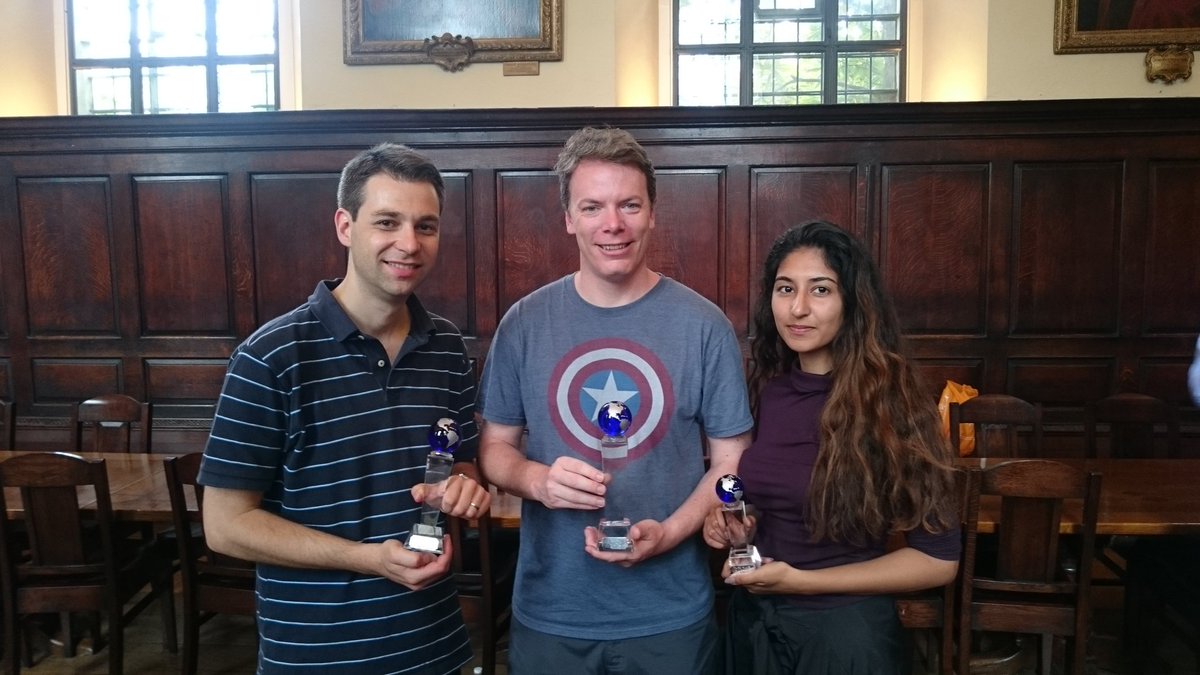
DH: Congratulations with your second WDC crown and thank you for participating in this interview for the Diplomatic Pouch Zine. Are you an occasional reader?
DM: I do read fairly often, yes.
DH: Great, we do like to count winners among our readership 😉 We've seen you play on the top board in last year's edition as Germany. This year you were Italy. Nathan Barnes was adamant that you're an incredible German player. But which power do you actually prefer yourself?
DM: It depends on how recently and often I've played various countries; I like variety and having things changed up. Generally though, I like the powers that are in the middle of everything and can really dictate what happens and the pacing. Italy, Germany, and Russia, in that order, are my current favorites.
DH: You won your first WDC ten years ago in Vancouver (playing France on the Top Board, no longer in your top 3). How did your game evolve in those 10 years?
DM: That is a great question. And a long answer...
I chose France in that game because it made sense. Though it isn't in my top power preference, it is still a very strong power, if not the strongest.
My game though, has changed greatly. In 2008, my son was born and I mostly stepped away from the hobby for time and parenting reasons. This is not an uncommon thing.
Contemporaneously, my game was forced to change. I played a direct, decisive style that was about gutting it out and maximizing every point. Facing coalitions against me in virtually every game from Vancouver to about 2010 made me an excellent defensive player. And my game shifted from direct attacks to an alliance/tempo style. I now try to find an ally who wants to move fast, fast, fast... and work with them -- worrying about center division or who gets what later.
DH: You now won a WDC in North-America and Europe. What continent could be next?
DM: Probably none -- I think I might have a bit of a target on my back. 😉
DH: If I check the venues of past WDC's, there's still Oceania (Australia and New Zealand mainly) to conquer. Less international participation there means your chances should increase. You'd simply have to set Andrew Goff aside so to say to win your third crown on your third continent. Sounds like a plan?
DM: Sure, no problem! Really though, the Aussie and NZ players I know are all very good. That said, I've loved visiting both countries in the past and would love to again in the future -- and this time, play some Dip.
DH: Final question: What was so great about the Oxford venue?
DM: A lot of things -- Dan went above and beyond to make everyone feel welcome. That effort was pretty incredible, bringing friends into help, taking us around town, and generally making us feel welcome.
The venue itself was nice, and it was pretty different than a normal tournament, which helps make it unique.
Plus, Dan. He's amazing and really went all out.
DH: A great performance and a deserved winner. Go and enjoy your success.
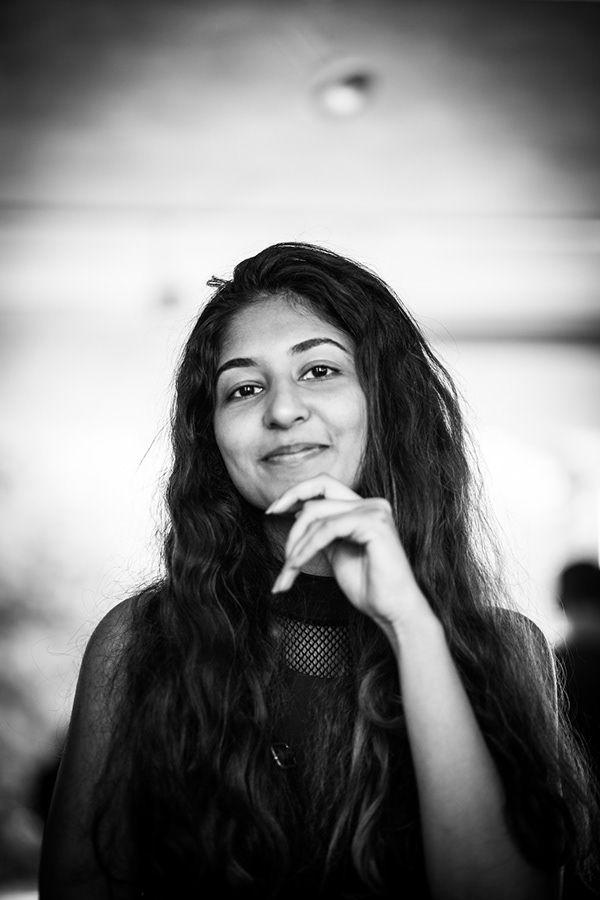
DH: I don't think many of the participants knew you before. It seems to me you came out of the blue to fall right into the prizes. You're 23 years old, from Canada. Was this your first international tournament?
TG: Yeah, it was actually my first time playing a face to face game ever. I'd never been to a diplomacy tournament before.
DH: That's all the more impressive. I know many of us come to their first tournament and get wiped off the board. Every board. What did you do different to earn such good results (two top board finishes, Best Turkey)?
TG: Well, I've played online for two years so I've got the tactics and strategy down pretty well. The concept of good press and negotiations also translates over easily so that helps. I think I'm good at saying what people want to hear, and I seem fairly trustworthy so it's easy for me to gain strong allies. Then it's just a matter of getting the upper hand on them one way or another. Not every result was a good one though, I got my first ever elimination as Turkey as well. That was traumatic!
DH: That was in your second game, after a very convincing start with a 13 center Germany in your first game. It might well have cost you a spot at the top table. What was your position after 4 rounds (3 games played)?
TG: I'm not entirely sure, the results after round 4 were never revealed as far as I know. But yeah, it was the Saturday morning round that went terribly. For what it's worth, I was extremely hung over and I got destroyed by Doug. If there's something I need to improve on it's the quick thinking aspect of face to face. And also maybe no alcohol the night before!
DH: I just ran the numbers. You were in the 20th position after round 4. None in the top 10 at that point had been eliminated in any of their games. You would have needed another top result as in your first game to make up for it and progress to the top board. So yes, it's pretty tough. Still, you topped two boards and came in third and best Turkey (round 5) in an almost exclusively male event. Did you feel you were being underestimated because of your gender or age?
TG: No. I think to a certain degree all online players are underestimated. I don't think this has anything to do with my gender or age however. There have been women at WDC's before. Everyone there is competitive and has a desire to win, which my gender isn't going to stop, as my elimination in game 2 clearly showed. And I think any hopes of underestimating me were squashed after I topped my board in round 1, which even had a player that knew me from online, so he had no reason whatsoever to underestimate me. I really did not feel any special treatment during the course of any game. I would frankly be insulted if someone tried that.
DH: That's positive to hear. I've been going through the previous WDC tournament results. Although it's a tricky thing to do since gender is not being recorded, I think there hasn't been a single top 10 finish for any woman in its 30 year existence. That makes your bronze plaque stand out all the more. But maybe now you're thinking "third is still third; I want to win this thing." Can we expect you to be back next year? Or in other tournaments?
TG: I'd like to be back. I'm going to try to go to Carnage this year, I can't make any promises about WDC next year since it is in the middle of a very important school year for me. But I really want to make it out to as much as my time and budget will allow.
DH: I hope you do and I wish you success. Third place in the top event on the calendar, your first FtF experience after just 2 years of online play, is a phenomenal achievement by any measure. I look forward seeing you on the top boards. It could trigger a Tanya Gill boom, inspiring countless women to join the boards and unleash their potential. The Hobby could only prosper. Agreed?
TG: Uhm.. Haha I wish that would be the case. I'm sure there's lots of women who'd be really amazing at dip if they gave it a shot. So far, I've recruited 0 women but I'm hoping that number changes soon.
DH: Best of luck!

|
Mario Huys, a.k.a. "Domus Huys" (woelpad@gmail.com) |